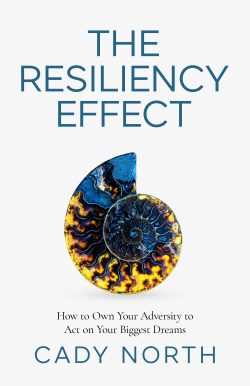Receiving an inheritance can often set off a chain of varying emotions. Perhaps there is grief for the one who passed away, guilt for getting money as a result, excitement that the money comes at just the right time to help you make a big change or realize a dream, overwhelm at the thought of looking into the IRS rules related to the money you received, jealousy of other family members who received something different than you or who seem just fine when you’re still a mess. The list goes on. Grief does weird things to us on its own, but add money in and people can act downright strange. Whatever you are feeling, know that it’s normal.
Having seen it all in my work with clients, so I wanted to provide some tips as you navigate this time.
Take a Step Back
First get some time and space away from the actual event which caused the inheritance. Other than perhaps some paperwork, there is no emergency to make big decisions regarding this inheritance. There is no need to rush the grieving process and certainly no need to make any decisions at all whether they are money related or not. Grieving and feeling emotions should be your main priority.
Aside from speaking with a grief counselor if needed, at this point you can seek some outside counsel if you feel up to it, whether it’s a tax accountant, attorney or financial advisor to begin the process of understanding what you have inherited. However, most professionals are trained to let you have as much space as you need to focus on yourself and your family. It should be a red flag if anyone pressures you into making quick decisions regarding this inheritance.
Look at the Big Picture
If you haven’t done any “inner work” lately try looking at the big picture. Losing a loved one can often cause us to evaluate our own lives — what we want for ourselves, our families, our careers and our own legacy. It’s worth spending some time thinking about questions like — what would I regret that I hadn’t achieved during my lifetime? Or how would I like to be remembered? These types of reflective questions can often help us think more clearly about our goals for our life.
My Book, The Resiliency Effect offers an array of reflective questions with each chapter designed to help you build resilience and create changes that move you more toward your goals in life and career.
Upon reflecting, we can better understand how the inheritance might be able to help us achieve those sorts of long-term life plans and legacies. If you start to think about these reflective exercises and it feels overwhelming, that may be a sign that you need to continue sticking to the first step above before moving on.
Then Make Sure of The Rules
This is where it can be really helpful to have advisors and help in your corner. A trusted advisor can help you get organized, evaluate the inheritance sources as well as get your own financial house a review as it relates to the money you will be receiving.
Did you know that there are mandatory amounts you must withdraw from inherited ROTH, 401ks, and Traditional IRAs? Have you looked at the tax consequence of selling real estate or stocks if you sell now versus waiting? Rules are changing all the time as Congress and state legislatures consider new tax laws. It can be extremely helpful to have someone(s) in your corner to be a sounding board as you consider the tax impacts and the nuanced rules, and navigate decisions that must be made collectively by your family or the other beneficiaries of the inheritance.
Get in touch with a CPA, attorney and/or financial advisor when you’re ready and make sure they are willing to listen to you about your unique situation.
Then Prioritize Your Goals
Hopefully you have been able to do some reflective work that has helped you start thinking through your financial and personal goals. Do you need funds to go back to school or start a business? Have you been interested in buying a house or paying off your mortgage? What about funding college for your children or other kids in your family? What about the seemingly way-off goals like retirement or partial/early retirement? It can be helpful to think through various timelines such as these are my goals for the next year, the next 5 years, the next 10-20 years, and so forth. Perhaps create a chart or map of your goals and priorities. Resist making quick decisions before you have thought about the short-term as well as long-term goals.
An inheritance can be life changing way to jump start action on any number of (or all of) these goals. But you might need to spend a lot of time thinking and rethinking your priorities before making a decision. Then you can decide when to distribute the funds, the frequency which they get distributed, and finally what to do with the funds. Again, this is where having a trusted financial advisor be a sounding board can be helpful. We’re not here to judge your process, your goals, or your effort, but to listen and provide guidance.
Don’t Forget to Examine Charitable Giving Opportunities
Many of us want to leave a lasting legacy that includes gifts to charity during or after our lifetime. Receiving an inheritance can be a good time to evaluate these potential opportunities. There could be very smart tax reasons to do so as well. Not everyone is charitably inclined, but as you evaluate your goals, don’t forget to consider your goals for giving.
No two inheritance cases are exactly alike because no one has the goals and preferences that you do. So there are often no right or wrong answers.


